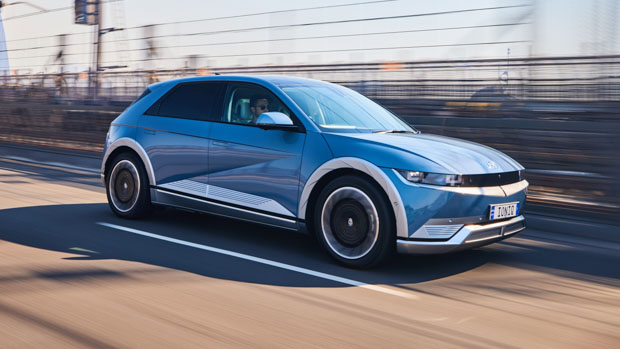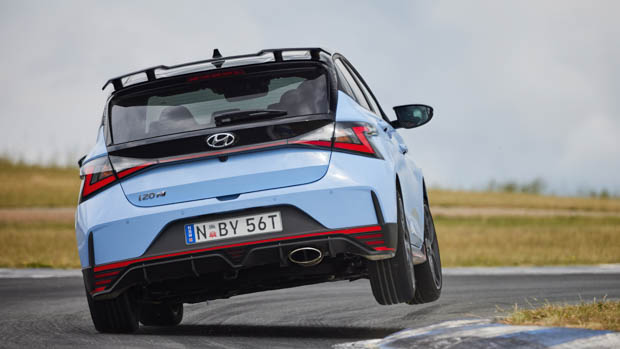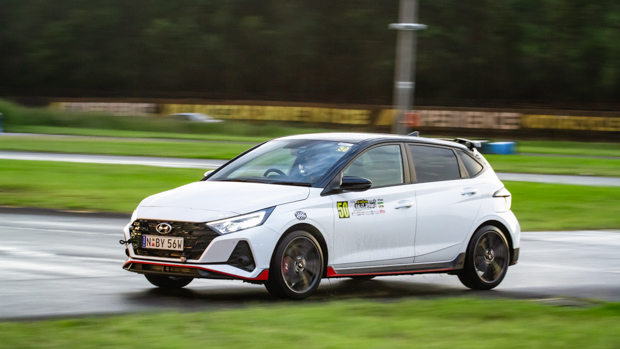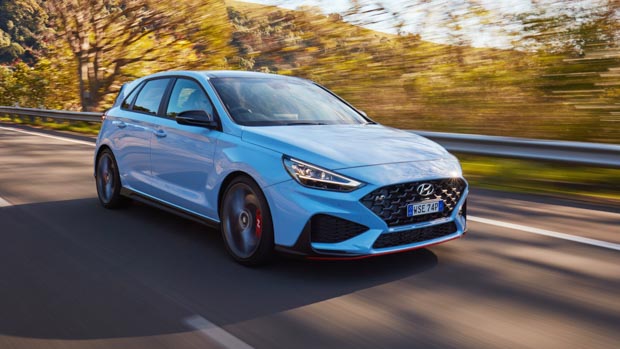-
Car Reviews
- All reviews
- Midsize SUVs
- Small cars
- Utes
- Small SUVs
- Large SUVs
- Large cars
- Sports SUVs
- Sports cars
- Vans
Latest reviews
- Car News
-
Car Comparisons
Latest comparisons
- Chasing Deals
The i30 N hatch will take a hiatus from the market due to emissions compliance, but it will likely be back soon as a full EV model
Hyundai’s first two high-performance N-division EVs are both set to be premium models priced at about $100,000 – but the company says it remains committed to building more affordable N performance cars in the electric age.
The confirmed-for-2023 Ioniq 5 N electric crossover and mooted Ioniq 6 N electric sports sedans are both set to be 430kW monsters with rear-biased AWD systems and outrageously quick 0-100km/h acceleration times in the mid-3 second range.
Read more about Hyundai’s future plans for its N cars in the electric age:
When the electric Ioniq 5 N arrives, it will cost about double the price of the petrol-powered Hyundai i30 N ($46,200) – while producing more than double the power. Meanwhile, the i30 N hot hatch program is winding down due to aggressive new European emissions limits, endangering Hyundai N’s affordable performance car formula.
The European Union’s proposed Euro 7 emissions regulations are slated to enter force in mid-2025. If a delay is not achieved, mid-2025 is the likely point at which Hyundai would be forced to discontinue the i30 N hot hatch, along with the i20 N and Kona N models.
However, Hyundai N executive technical adviser Albert Biermann told Chasing Cars that the brand is plotting electric-powered entries into both the B- and C-segment hot hatch arenas. These vehicles would essentially be all-electric replacements for today’s i20 N and i30 N hatchbacks.
To that end, as it concludes engineering work on the Ioniq 5 N and makes strides in the related Ioniq 6 N project foreshadowed by the RN22e, Hyundai is now shifting some focus to thinking about affordable, fully-electric N cars.
While the timescale for release of an EV i20 N and i30 N is not confirmed, it is likely to be between 2025 and 2030.
N division’s most senior engineers are contributing massive effort to the Ioniq 5 N program to ensure that the model achieves the brand’s lofty pillars, including true racetrack capability and stamina, when it hits the market in the next 18 months.
“We focus most of our energy at the moment on the transition to electrification,” said N boss Wartenberg. “We have to show that people’s worry that fun-to-drive is over when it’s electrified is not true.”
New N chief Wartenberg, who works closely with adviser Albert Biermann, said that the hope is that a petrol-powered N car – probably the new-generation i30 Sedan N – can continue “until we have electrified high-performance cars from N which might be lower priced.”
Development within Hyundai N to develop a pair of high-performance electric hot hatches is in its infancy, but senior executives are nearly agreed on their approach to the concept – including a divide between a cheaper, 400-volt model and a more premium 800-volt car.
This will provide an avenue for the i20 N and i30 N respectively to return as electric hot hatches in future, Biermann intimated.
The key difference between the pair of renewed hot hatches would be the use of a cheaper 400-volt electrical architecture for the i20 N to achieve a low price, while Biermann has recommended waiting to replace the i30 N with an 800-volt platform that would make the car more expensive but would allow stronger track capability.
“Having a clear idea of what N stands for, I would say it is not a good idea to put a 400-volt power-electric system into an N vehicle,” Biermann said.
“If in the same company you have the finest 800-volt system with silicon carbide inverters and high-speed motors, why go [400-volt] and be eaten by the pack of 400-volt guys [BMW, Mercedes, etc]?
“In entry-level cars, B-segment [i20 N-size], this is where I can maybe see a 400-volt car, just to be affordable, as an N car. In a much smaller car, then the affordability and performance might match. But of course, you have to compromise.” Biermann said.
The compromises N division would need to make in order to use a cheaper 400-volt platform would involve slower recharging speeds and less sophisticated motors and inverters at a minimum – but for a cheap, light hot hatch, this could be acceptable.
In fact, the situation would reflect the current gulf in Australia between the 150kW/265Nm 1.6-litre turbo i20 N ($34,990) and beefier 206kW/392Nm 2.0-litre turbo i30 N hot hatch ($46,200).
For the future electric i30 N, Biermann said that his advice to Wartenberg, and others at Hyundai, is to wait to re-introduce the hot hatch on an 800-volt architecture. This would likely be Hyundai’s 800-volt ES platform that will replace e-GMP for new Hyundai EV passenger car models from about 2025.
“In the C-segment [i30], I would not suggest to [use 400-volt],” Biermann said. “For N’s racetrack capability, you need the finest battery money can buy in mass production scale. This is what we have in our e-GMP platform.
“Now, we build tonnes of e-GMP cars for Genesis, Kia and Hyundai, so prices are getting more and more reasonable on these components – so I hope at some point, we can make this [800-volt] technology available in smaller cars.”
Pressed on whether the mooted C-segment, N-badged EV would be a direct replacement for the storied i30 N badge, Biermann was amenable to the concept.
“When we talk [about the] C-segment and EV [for Hyundai N], it could be a hatchback, yeah. But it might take some time to get it right,” he said.
So there is a future for the i30 N hot hatch? “Yeah, I would think so,” Biermann said.
Latest news
About Chasing cars
Chasing Cars reviews are 100% independent.
Because we are powered by Budget Direct Insurance, we don’t receive advertising or sales revenue from car manufacturers.
We’re truly independent – giving you Australia’s best car reviews.




